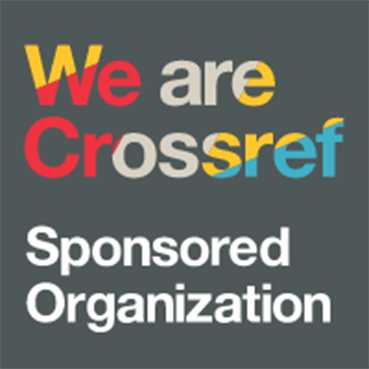Strategi Pembentukan Karakter Religius melalui Program Taman Pendidikan Al-Qur’an di MI Tholabuddin Gandusari Blitar
Main Article Content
Khusnul Khamidah Mida
Binti Maunah
This study aims to analyse the strategy employed in cultivating religious character through the Al-Qur'an Education Garden program. The research was conducted at Madrasah Ibtidaiyah (MI) Tholabuddin Gandusari Blitar. Utilizing a qualitative approach, this research systematically and accurately reports the characteristics of the population and the locality of MI Tholabuddin Gandusari Blitar. The research methodology involved the direct collection of data from the field through observation guidelines, interviews, and document analysis. Primary data were sourced from the madrasah head, curriculum coordinator, Al-Qur'an Education Garden (TPQ) coordinator, TPQ teachers, and students, while secondary data encompassed journals, books, archival sources, and official documents. Data analysis was conducted through the process of data reduction, data presentation, and summarization of findings. The outcomes of the study spotlighted the TPQ program as an integral part of shaping students' religious character at MI Tholabuddin Gandusari Blitar. The instructional materials focus not solely on formal education, but also on fostering student engagement in interactive activities and the application of religious values in their daily lives. This study revealed that: 1) The teacher's role as an instructor and facilitator significantly influences character development, particularly their capacity to link religious values with practical everyday application. 2) The amalgamation of formal and informal learning within TPQ leads to a comprehensive comprehension of religious values within the modern context. 3) Pedagogical methods, such as the tartila method, integration of religious values, a variety of teaching techniques, and assessment, play a pivotal role in shaping students' religious character. 4) The non-academic approach through role modelling and habituation outside formal learning hours also helps shape students' religious character. In essence, an all-encompassing approach encompassing learning materials, teacher roles, integration of religious values, pedagogical methods, and non-academic character cultivation profoundly and enduringly influences the development of students' religious character. This is vividly illustrated by the Al-Qur'an Education Garden Program at MI Tholabuddin Gandusari Blitar.
Abdullah, R. (2017). Pembelajaran dalam Perspektif Kreativitas Guru dalam Pemanfaatan Media Pembelajaran. Lantanida Journal, 4(1), 35. https://doi.org/10.22373/lj.v4i1.1866.
Ahmad, B. (2016). MenjadiGuru Unggul. Yogyakarta: Ar Ruzz Media.
Ahsanulkhaq, M. (2019). Membentuk Karakter Religius Peserta Didik Melalui Metode Pembiasaan. Jurnal Prakarsa Paedagogia, 2(1). https://doi.org/10.24176/jpp.v2i1.4312.
Arikunto, S. (2019). Prosedur Penelitian Suatu Pendekatan Praktik. Rineka cipta.
Danim, S. (2012). Menjadi Penelitian Kualitatif. Bandung: Pustaka Setia.
Djamarah, S. B. (2005). Guru dan Anak Didik dalam Interaksi Edukatif: Suatu Pendekatan Teoritis Psikologis. Jakarta: PT Rineka Cipta.
Hardani, H. A. (2020). Metode Penelitian Kualitatif & Kuantitatif. Cv. Pustaka Ilmu Group.
Maunah, B. (2009). Landasan Pendidikan. Yogyakarta: Teras.
Maunah, B. (2015). Implementasi Pendidikan Karakter dalam Pembentukan Kepribadian Holistik Siswa. Jurnal Pendidikan Karakter, 1(4), 98. https://journal.uny.ac.id/index.php/jpka/article/view/8615/0.
Mayanti, I. (2020). Pengaruh Lingkungan Sekolah terhadap Pembentukan Karakter Siswa Kelas IV di MI Al-Ittihadul Islamiyah Ampenan Tahun Ajaran 2019/2020. Mataram: UIN Mataram. http://etheses.uinmataram.ac.id/2339/1/Ika%20Mayanti%20160106082.pdf.
Moleong, L. J. (2019). Metodologi Penelitian Kualitatif.
Mufida, L. L. (2013). Pendidikan Moral dalam Perspektif Pendidikan Islam. Jurnal Peadagogia, 2(1), 111. http://repo.uinsatu.ac.id/31179/1/pendidikan%20moral.pdf.
Riyadi, A. (2006). Politik Pendidikan Menggugat Birokrasi Pendidikan Nasional. Yogyakarta: Ar-Ruzz.
Safitri, D. (2019). Menjadi Guru Profesional. Riau: PT Indagiri.
Salabi, A. S. (2022). Promoting Inclusive Education: Enhancing the Quality and Addressing Challenges in Teaching Islamic Religious Education to Children with Special Needs. Idarah (Jurnal Pendidikan Dan Kependidikan), 6(2), 213–226. https://doi.org/https://doi.org/10.47766/idarah.v6i2.417.
Salabi, A. S., & Prasetyo, M. A. M. (2022). The Internalization of Banjaran Cultural Character Values in Musthafawiyah Islamic Boarding School, Purbabaru. MIQOT: Jurnal Ilmu-Ilmu Keislaman, 46(2). https://doi.org/10.30821/miqot.v46i2.900.
Shaleh, A. R. (2006). Pendidikan Agama dan Pembangunan Watak Bangsa. Jakarta: Rajawali Press.
Sisdiknas. (2003). Undang-Undang Sisdiknas No.20 Tahun 2003 tentang Sistem Pendidikan Nasional. Bandung: Citra Umbara.
Sugiono. (2011). Metode Penelitian Kuantitatif kualitatif dan R&D. Alfabeta.
Zakariya, D. M. (2020). Teori Pendidikan Karakter menurut Al-Ghozali. Tadarus: Jurnal Pendidikan Islam, 9(1), 97. https://journal.um-surabaya.ac.id/index.php/Tadarus/article/view/5463.








